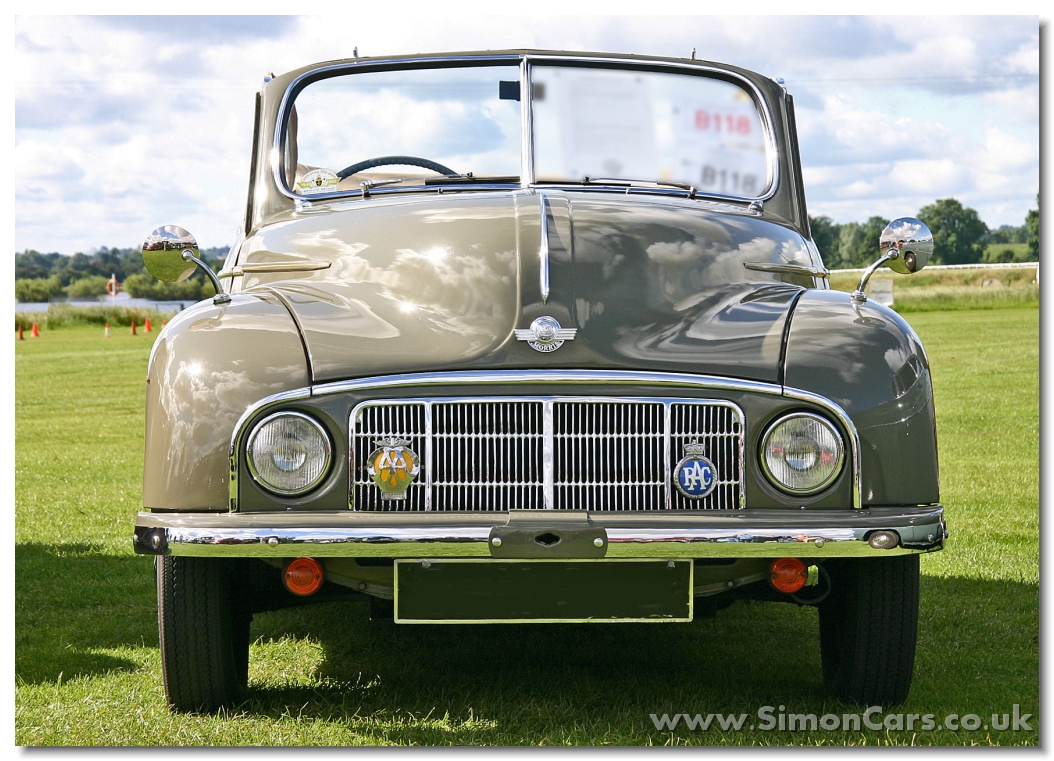

The Morris Minor, like the Mini, is one of those cars that everyone recalls. It all started in 1942-43, when Morris Motors’ Alec Issigonis first sketched out his ideas for a new post-war small car. Egged on by the vice-chairman, Miles Thomas, his small team designed the ‘Mosquito’ around a squat unit-construction body shell, which was to be powered by a new type of flat-four cylinder engine. Post-war shortages and a lack of capital caused delays, the new engine was swept away in favour of an ancient side-valve unit, and the entire shell was widened at the last minute, but the Morris Minor which went on sale in 1948 was still an intriguing proposition. At a time when most British cars looked narrow and old-fashioned, the new-shape Minor was arresting, had torsion bar front suspension to provide great handling, and rack-and-pinion steering to provide precise direction.
The fact that the top speed was little more than 60 mph, and that the styling was not to everyone’s taste (Lord Nuffield himself is supposed to have likened it to ‘a bloody poached egg’) made no difference. For the next two decades Nuffield (and later BMC) sold Minors just as fast as they could be made.
From 1952 Series II Minors got a new overhead-valve engine, but no more performance, and from 1956 they became Morris Minor 1000s, with a more powerful 948 cc engine. The last Minors of all had 1.1-litre engines, but by that time they had become institutions, and no-one really measured the performance.
Minor styling changed little over the years, although the headlamp position was raised in the early 1950s, and bow windows front and rear) were part of the Minor 1000 package of 1956. The splendid roadholding, the rather boomy exhaust note, and the way it acquired and kept its ‘district nurse’s car’ image all remained constant.
Morris Minor
Years in production: 1948–1971

Structure: Front engine/rear-drive. Monocoque body/chassis

Engine type: 4-cylinder, side-valve.

Bore and stroke: 57 x 90 mm

Capacity: 917 cc

Power: 27 bhp @ 4,000 rpm

Fuel supply: One horizontal SU carburettor

Suspension: Independent front, beam-axle rear

Weight: 1,735 lb

Top speed: 62 mph
Years in production: 1948–1971
Structure: Front engine/rear-drive. Monocoque body/chassis
Engine type: 4-cylinder, side-valve.
Bore and stroke: 57 x 90 mm
Capacity: 917 cc
Power: 27 bhp @ 4,000 rpm
Fuel supply: One horizontal SU carburettor
Suspension: Independent front, beam-axle rear
Weight: 1,735 lb
Top speed: 62 mph
No comments:
Post a Comment